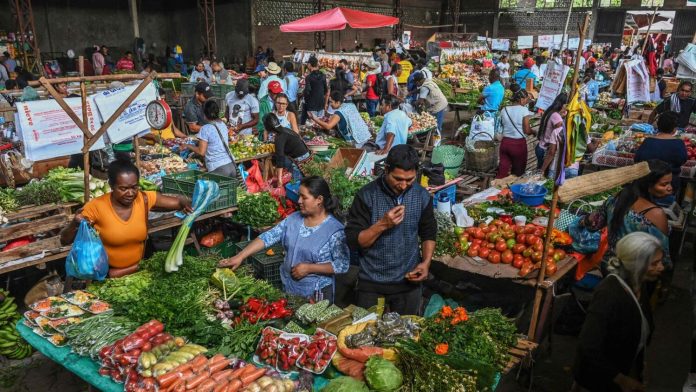Decades of scientific inquiry have underscored the manifold advantages of diets abundant in fiber, encompassing benefits such as improved digestive health, extended lifespan, and diminished susceptibility to chronic ailments like heart disease, diabetes, and select cancers.
Nonetheless, recurrent national surveys have consistently revealed a dearth of fiber consumption among individuals in the United States. Research conducted from 2015 to 2018 revealed that merely 4% of men and 12% of women adhered to recommended fiber levels, which range from 21 to 38 grams per day contingent on age and gender.
This shortfall is substantially less than the fiber intake our ancestors likely enjoyed, posits Dr. Stephen O’Keefe, a professor of medicine and gastroenterologist at the University of Pittsburgh. Notably, contemporary hunter-gatherer populations in Tanzania reportedly consumed as much as 100 grams of fiber daily.
The root of our collective fiber deficiency is partly attributed to modern food processing practices that divest foods of a significant portion of their fiber content, Dr. O’Keefe elucidates. Consequently, we might be foregoing numerous associated benefits.
Dietary fibers constitute a broad category of carbohydrates that remain indigestible within our gastrointestinal systems, as explained by Joanne Slavin, a professor of food science and nutrition at the University of Minnesota. Unlike sugars and starches, which undergo digestion and absorption in the small intestine, fiber traverses the digestive tract, exerting distinct effects contingent on its type.
Certain fibers form a gel-like substance that decelerates food movement through the gut, potentially curbing blood sugar spikes and reducing cholesterol levels, notes Kevin Whelan, a professor of dietetics at King’s College London. Other fibers serve as nourishment for gut microorganisms, fostering a robust gut microbiome, while some contribute bulk to digestive material, forestalling constipation.
A comprehensive review of 185 studies in 2019 compared individuals adhering to higher-fiber diets with those adhering to lower-fiber diets. The study revealed that those consuming the most fiber had a 16% lower risk of developing Type 2 diabetes or colorectal cancer and a 31% lower risk of coronary heart disease-related mortality.
The authors of the study concluded that a daily intake of 25 to 29 grams suffices to reap these benefits. Clinical trials additionally demonstrated that high-fiber diets led to decreased blood pressure, cholesterol levels, and body weights.
Fiber-rich diets tend to be replete with vitamins, minerals, and beneficial plant compounds, rendering fiber supplements unlikely to replicate the multifaceted advantages of high-fiber diets.
A mounting body of evidence suggests that diets rich in fiber-laden, plant-based foods might contribute to a thriving gut microbiome, linked to enhanced appetite regulation, reduced inflammation, and anticancer effects.
To boost fiber intake, experts recommend a gradual approach, incrementally increasing daily fiber consumption and allowing the body time to adjust. Adequate water intake is advised to ease the transition and mitigate potential bloating and gas.
Fiber sources span a range of whole or minimally processed plant-based foods, including legumes, whole grains, nuts, seeds, fruits, and vegetables. Combining various fiber-rich foods ensures access to the diverse benefits of distinct fiber types.
In cases where meeting fiber goals with whole foods proves challenging, supplementation is an option. Opting for supplements containing multiple fiber types is optimal for maximal health benefits.
Tailoring fiber supplement choices to address specific concerns, such as constipation or high cholesterol, necessitates consultation with a healthcare provider. Caution should be exercised, as some fiber supplements, like psyllium, might interfere with medication absorption.
As individuals age, a growing reliance on fiber supplements is common, particularly for those with limited diets or reduced physical activity. This adjustment can aid in averting constipation among older adults.
Dr. Slavin underscores the pivotal role of fiber in sustaining gut health and overall well-being, summing up, “If we keep our gut happy, we can be happy. And fiber is a big piece of that.”



